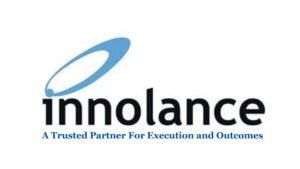
Tailoring Salesforce to your company’s exact operations unlocks powerful opportunities. Customizing your CRM delivers profound benefits across productivity, adoption, data management, compliance, and growth—all combining to maximize your Salesforce ROI.
First, customization significantly boosts efficiency and productivity by automating repetitive, manual tasks and aligning workflows with how your team naturally operates. Inbox notifications, approval queues, data entry, or follow-up reminders become seamless. Personalized dashboards and tailored reports deliver real-time insights relevant to each role, streamlining decision-making and execution. This enables teams to focus on value-driving activities instead of administrative overhead.
Second, customization fosters stronger user adoption. When page layouts, navigation, terminology, and workflows closely mirror users’ everyday responsibilities, friction disappears. The system becomes intuitive, reducing learning curves and increasing engagement. Better adoption then results in richer data quality and greater confidence in the system—driving stronger CRM usage throughout.
Third, custom objects, fields, validation rules, and dashboards ensure superior data integrity and analytics capability. Business-critical data is captured correctly, and dashboards are built around metrics that matter to your organization. The result: deeper segmentation, smarter campaign targeting, and enhanced strategic clarity across departments.
Fourth, customized Salesforce promotes seamless integration across your systems. Whether it’s ERP, marketing automation, HR software, support tools, or BI platforms, Salesforce can be designed to fluidly exchange data with your entire tech stack. This unified flow eliminates duplicate entries and data silos, creating a single source of truth for customer and operational insights.
Fifth, customization provides scalability and flexibility that grows with your business. As you roll out new products, restructure teams, or explore new markets, your CRM adapts quickly. Custom Salesforce development enables you to add new modules, automate evolving business processes, and accommodate increased data volumes—without rebuilding your CRM from scratch.
Sixth, a customized Salesforce environment elevates customer experience and delivers competitive differentiation. CRM workflows reflect your unique industry practices—whether capturing compliance checkpoints, managing field operations, or tracking product usage. Teams can personalize communications, service workflows, and product journeys using real-world business logic rather than generic templates.
Seventh, customization strengthens data security and supports regulatory compliance. Role-based access controls, audit trails, and validation rules can be embedded directly into the CRM logic. For companies in healthcare, finance, or other regulated sectors, this enables adherence to standards such as HIPAA, GDPR, or PCI DSS, while providing clear visibility and control over sensitive information.
Beyond these seven core benefits, custom Salesforce development enables accelerated time to market—for product launches, marketing campaigns, or sales programs. Workflows, triggers, and integrations designed around your campaign structure let you deploy go-to-market strategies faster and with precision.
Trusted sources confirm that custom development empowers efficiency, productivity, and satisfaction while reducing manual intervention. Tailored frameworks and development services deliver better data automation and enable organizations to harness Salesforce as a unified platform for operations and analytics. This holistic approach eliminates the need for third-party analytics tools, costly workarounds, or manual spreadsheet scaffolding.
In practice, businesses have used customization to centralize customer data in one place, providing a comprehensive 360-degree view of customers that empowers smarter engagement and marketing strategies. Automation of manual approval flows and repetitive tasks frees teams to focus on strategy. This also improves collaboration between sales, marketing, and service functions. Custom Salesforce implementations have consistently led to ROI gains through enhanced usage, data visibility, and user satisfaction.
Best practice deployment includes beginning with a clear understanding of your business’s goals, designing workflows that align with how your teams actually work, and ensuring rigorous change management. User training tailored to roles, clean data governance, and secure access policies are essential. Ongoing maintenance and structured updates keep implementations aligned with evolving business needs and prevent technical debt over time.
In summary, custom Salesforce development empowers organizations to:
Increase operational efficiency through automation and role-specific insights.
Boost user adoption by tailoring the interface and workflows to real job roles.
Improve data integrity and analytics with custom objects and validation logic.
Achieve seamless integration across platforms, unifying data and reducing duplication.
Build scalability into your CRM so it evolves as your business grows.
Deliver tailored customer experiences aligned with your industry demands.
Embed compliance and security controls directly into your CRM architecture.
These capabilities elevate Salesforce from a generic CRM into a strategic ecosystem that supports future growth. With customization, Salesforce becomes not just a tool but a business-by-design platform—sharpening competitiveness, increasing agility, and ensuring long-term value from your investment.
